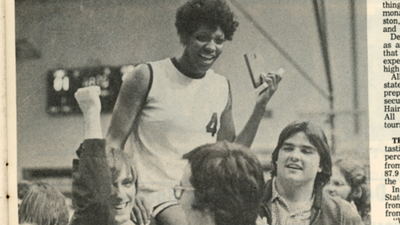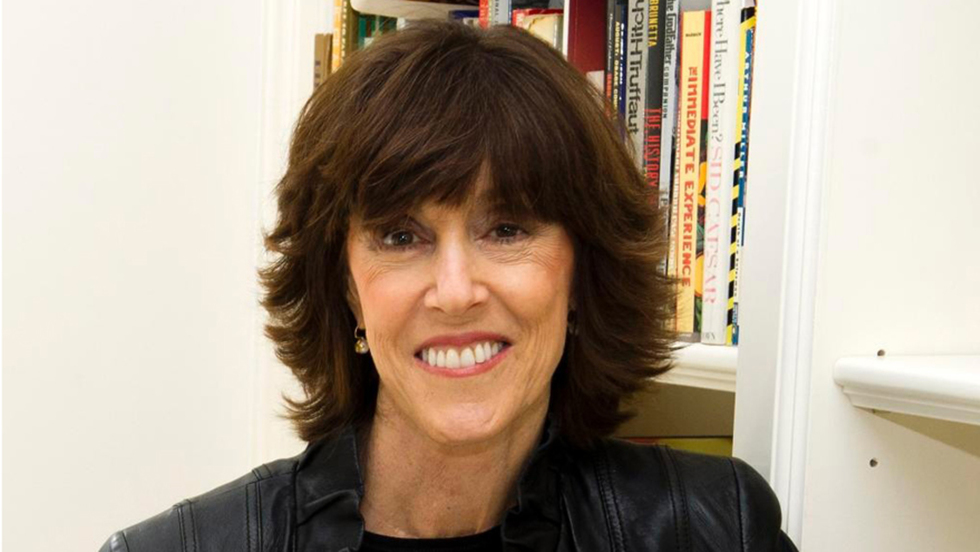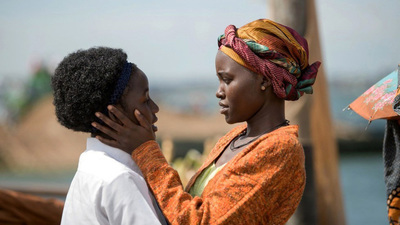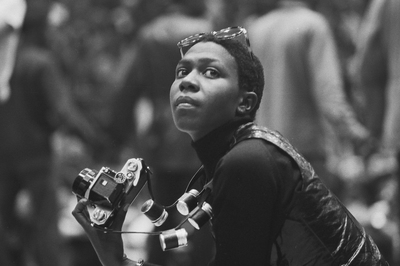
BY THE EDITORS |
The Spectacular Nora Ephron Remembered: “Be the Heroine of Your Life”
Tributes are pouring in about the wit, wisdom, and, above all, humor of one of our most treasured writers, Nora Ephron. Without her sharp, witty and genuinely compassionate commentary on life, the world now seems a little bit darker.

Photo credit: Charles Sykes / Associated Press
At the very first Tribeca Film Festival, in 2002, Nora Ephron moderated a panel entitled In Love, In the Movies. In one of our favorite clips, she discussed one of her worst dates ever—possibly foreshadowing When Harry Met Sally?—and delineated what she sees as the “two kinds of romantic comedies”:
Though Nora Ephron was the architect of some of our most iconic romantic comedies—When Harry Met Sally, Sleepless in Seattle, and You’ve Got Mail—she also tackled serious topics: from nuclear contamination in her first hit film, Silkwood, to a candid depiction of her own divorce (from writer Carl Bernstein) in the bittersweet Heartburn. The latter was a clear example of Ephron’s ability to find humor and hope in the bleakest of situations, which became one of her signature traits.
Actresses such as Meg Ryan, Julie Kavner, Andie MacDowell, and the phenomenal Meryl Streep (who received Oscar nominations for 2 of her 3 Ephron-penned roles) served as mouthpieces for Ephron’s most famous characters in a number of career-defining performances.
As a writer, Ephron was nominated for three Oscars. Always finding new ways to challenge herself, at 50, she also became a member of a rarefied clan: women directors who found unqualified success at the box office. Starting with the under seen gem, This is My Life (which she co-adapted with her beloved sister, Delia), Ephron honed her directorial skills. As the self-assured director of Sleepless in Seattle, You’ve Got Mail, and most recently, the sumptuous Julie and Julia, she hit box office gold.
Though she had many talents, Nora Ephron was above all a writer—of books, movies, and plays, including Love, Loss and What I Wore, a paean to the poignant memories evoked by fashion choices, which she co-wrote with her sister Delia. She was always a rich observer of popular culture and everyday life: she spoofed The Girl with the Dragon Tattoo in The New Yorker, she jumped on the Krispy Kreme bandwagon, she worried about aging—and wrote about it spectacularly—and her Huffington Post archive is ripe with observations about politics, relationships, and food. Really, what else is there?
Tributes
In today’s New York Times obituary, Charles McGrath says director Mike Nichols (who worked with Ephron on Heartburn) encouraged her to direct: “I knew she would be able to do it,” he recalled. “Not only did she have a complete comprehension of the process of making a movie—she simply soaked that up—but she had all the ancillary skills, the people skills, all the hundreds of things that are useful when you’re making a movie.”
McGrath also takes a page from Ephron’s essay collection “I Remember Nothing,” quoting a list of things Ephron says she won’t miss when she’s gone: “dry skin, Clarence Thomas, the sound of the vacuum cleaner, and panels on “Women in Film.”” (We like to think the final entry was a reference to her hope for a time when women directors would not be anomalies.)
Arianna Huffington remembers how much fun it was to call Ephron her friend: “Whenever I was around her through the years the air crackled with energy and ideas and one-liners—and a sense of celebration... She was as talented at friendship as she was at everything else she tried.”
Melissa Silverstein of Women in Hollywood calls Ephron’s death “a devastating loss.” “We can't underestimate how important she was as a role model to women directors,” she explained. “She made many women love her because she made women and women's experiences matter. She wrote about and for a generation of women who grew up with feminism with all its pluses and the minuses... Most of all she made women count in Hollywood. She was a feminist writer because she cared about writing about women when so few others did.”
Stephen Schiff in The Daily Beast praises Ephron’s whip-snapping wit, calling her “our Dorothy Parker—except Nora did more, and with less strife… [U]nlike Parker, she consumed life’s pleasures avidly without being consumed by them. Nora knew how to sting without being bitter. Even when she was writing about the woes of a cracking marriage or the trials of aging, her humor always floated angst-free.”
From Jane Rosenthal at Tribeca:
Heartbroken in NYC: RIP Nora
A line from her excellent 1996 commencement address at Wellesley stands out, and has rightly become a Twitter meme over the past 24 hours: “Above all, be the heroine of your life, not the victim.”
Ephron's Legacy on Film
And now, a few of our favorite iconic clips from Ms. Ephron's filmography.
One of the most memorable scenes from Heartburn features this painfully affecting monologue as Rachel (Meryl Streep) is finally forced to make a decision about her crumbling marriage. Famously based on Ephron's own failed relationship, it’s a monologue that only this three-time Oscar winner could deliver.
It was hard to pick just one scene to highlight from Sleepless in Seattle, but we managed. Barely. Skillfully written and directed by Ephron, Tom Hanks, Victor Garber and Rita Wilson are all at the top of their games as they famously debate which movie leaves its audience more emotionally devastated: An Affair to Remember or The Dirty Dozen.
How can you forgive this guy for standing you up and not forgive me for this tiny little thing of putting you out of business? Oh, how I wish you would. It doesn't get much better than this. You've Got Mail reunited the dream team of Nora Ephron/Meg Ryan/ Tom Hanks, proving that their chemistry, both on-screen and behind the scenes, stood the test of time.
Rest in peace, funny lady.

